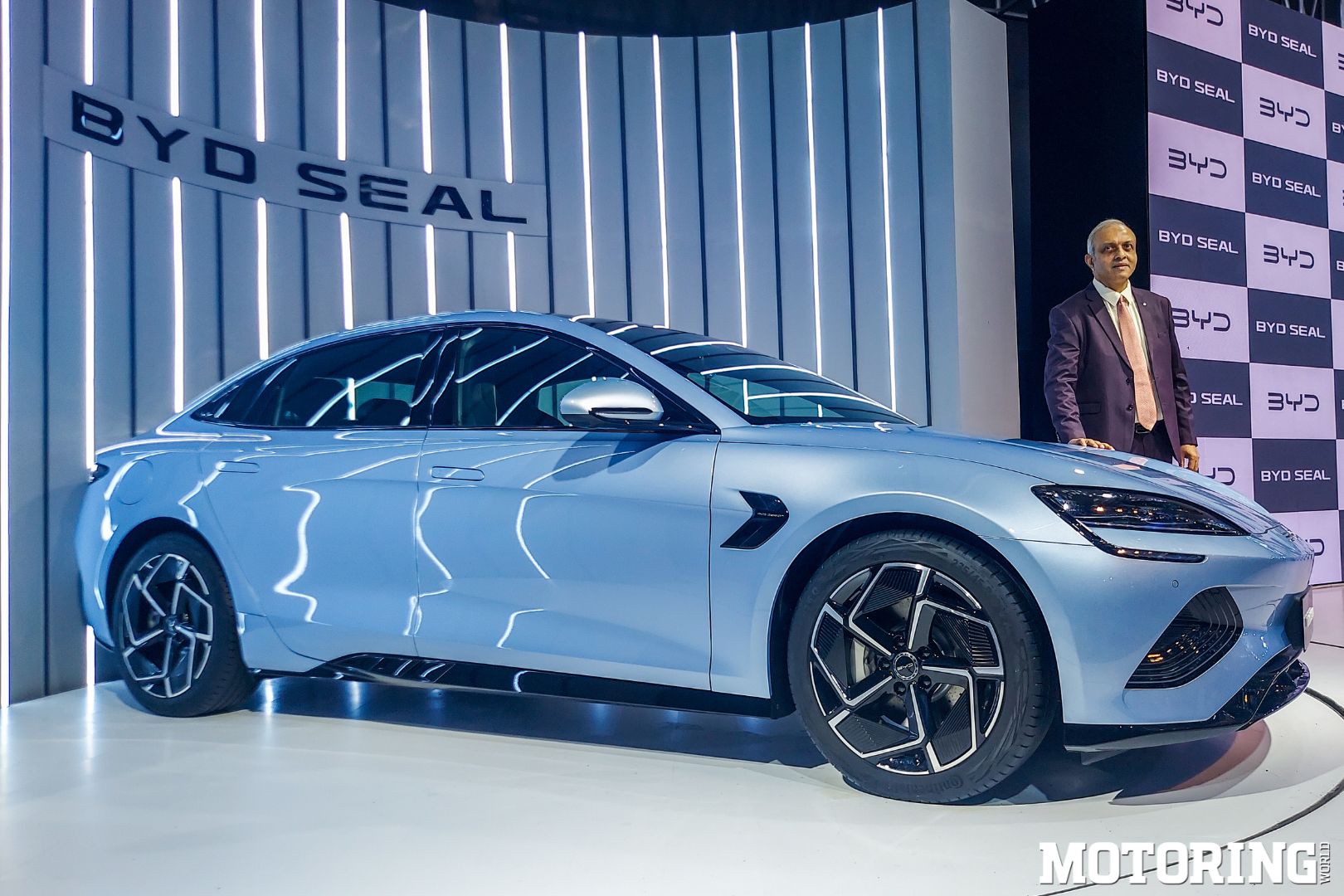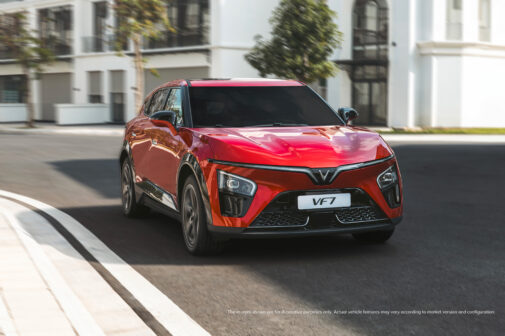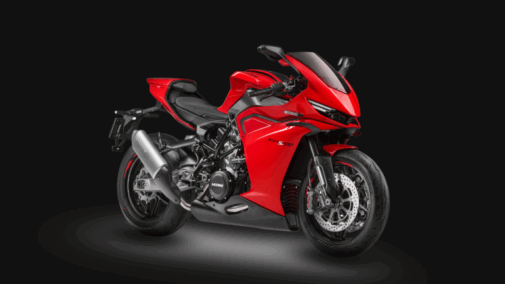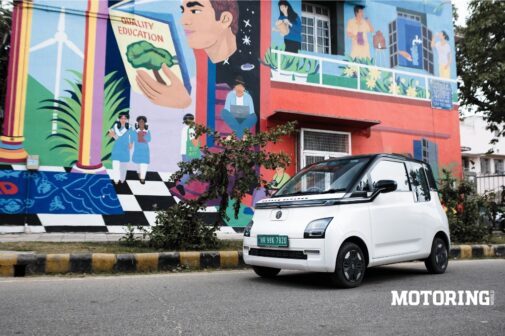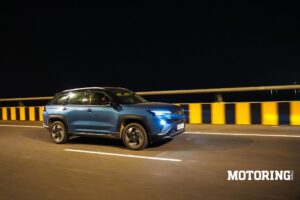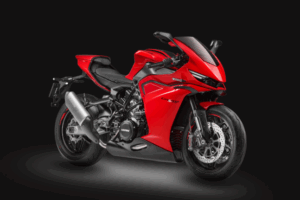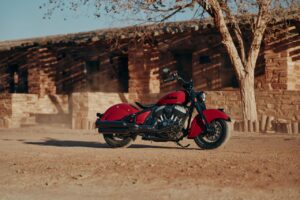We’ll be honest here; we were quite surprised at hearing the prices of the BYD Seal; it’s not everyday that a premium electric sedan comes in at Rs 41.00 lakh (ex-showroom) and suddenly seems to threaten the likes of the Hyundai Ioniq 5, Kia EV6 and the Volvo XC40 Recharge. If you’re a football fan who’s also interested in booking the Seal, or sealing the deal, so to say, you might just want to hit this (but focus here first!)
The Seal is available in three different variants; two rear-wheel drive and one all-wheel drive. The base ‘dynamic’ variant comes in at Rs 41.00 lakh, while the ‘premium’ variant costs Rs 45.55 lakh (ex-showroom), and the range-topping ‘performance’ variant can be had from Rs 53.00 lakh (all prices ex-showroom) onwards. While the first two variants get rear-wheel drive, the performance variant comes with all-wheel drive.
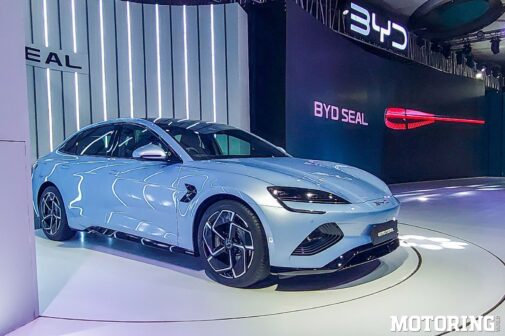
So what’s it about the BYD Seal? Design-wise, the Seal follows an ‘ocean aesthetic’ philosophy, with a streamlined body style. It gets bits such as flush-fitting door handles, waterdrop-shaped ORVMs, and DRLs inspired by an ocean wave ripple. While the 19-inch alloy wheels are common to the mid-range and top-end variant, the base variant makes do with 18-inch wheels. The rear might remind you of a certain American muscle car, but let’s not waste our time on that for now.
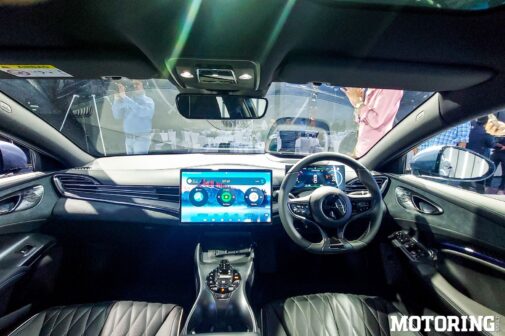
The interiors of the Seal appear sporty, with an all-black upholstery helping its case. Bits such as the 15.6-inch rotating infotainment screen and the steering wheel have been lifted off of the Atto 3. On first impressions, the seats feel really well bolstered and comfortable, but obviously a review will help us figure out these things much better. In terms of equipment, the Seal is packed to the gills with stuff like a silver-plated fixed-glass roof, a 10.25-inch digital cluster, rain-sensing wipers, electronically-adjustable A/C vents, voice commands, a 50-litre ‘frunk’, powered tailgate, and two wireless charging pads among other things.
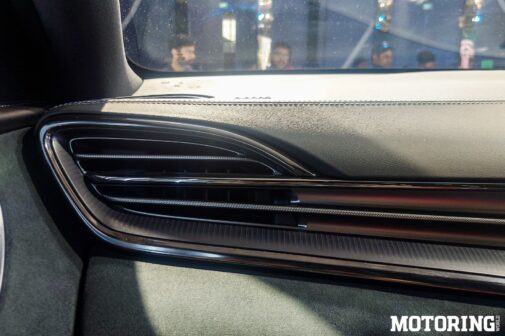
The Seal also gets an ADAS suite consisting of adaptive cruise control, automatic emergency braking, blind spot detection, lane departure warning and prevention, rear-cross traffic alert, and a door open warning.
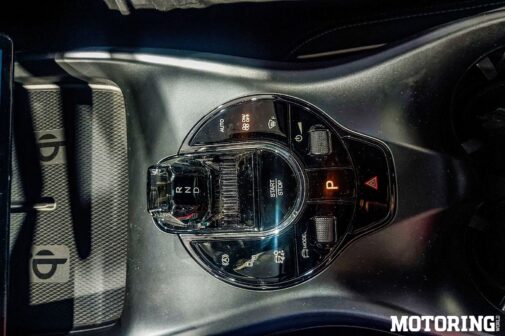
The rear-wheel drive variants get varying levels of performance, so let’s clarify that; the base ‘dynamic’ variant comes with 201 bhp and 31.61 kgm of torque. While triple digits come up at 7.5 seconds, top speed is rated at 180 kph. The ‘premium’ variant produces 308 bhp and 36.70 kgm of torque, and it takes 5.9 seconds to go from 0 to 100 kph. We’ve saved the most powerful one for the last; the range-topping ‘performance’ variant, with a combined output of 522 bhp and 68.32 kgm of torque, and a 0-100 kph time of just 3.8 seconds.
Backed by BYD’s Blade technology, all three variants also get varying levels of range as well; it’s the mid-range ‘premium’ variant that can cover the most distance on a single charge, with a claimed range of 650 km, while the range-topping ‘performance’ variant claims to cover 580 km. Meanwhile the base ‘dynamic’ variant can run up to a claimed 510 km on a single charge. Of course we’ll be verifying the range figures on a review soon enough. The Seal can be charged via a regular 11 kW AC setup, along with type-2 7 kW AC setup, and 150 kW DC fast charging setups as well. If you book the Seal before March 31, BYD will give you a free installation of the 7 kW AC charging setup, along with a 3 kW portable charging box, a complimentary inspection, six years roadside assistance, and a vehicle-to-load power supply unit.
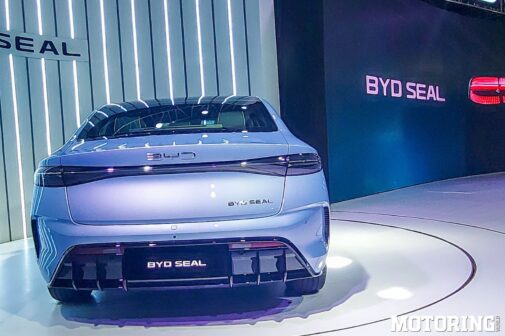
Should you be sealing the deal then? Why not wait for our review to come out, and maybe then take a test drive?





